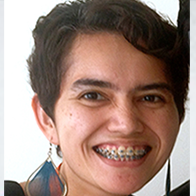I spent most of my adult life studying sexually transmitted infections (STIs) but I think the biggest issue with Malaysians and sex is actually our approach towards it.
 We are too afraid to admit that like all humans, we want, nay need, sex. We would rather sweep anything that has to do with the word "sex" under the carpet and live in our perfect world where sex only happens between legally married, religiously pious, gender opposite couples to make babies.
We are too afraid to admit that like all humans, we want, nay need, sex. We would rather sweep anything that has to do with the word "sex" under the carpet and live in our perfect world where sex only happens between legally married, religiously pious, gender opposite couples to make babies.
We do not even have a healthy perception towards heteronormative sex, what more non-heteronormative ones. Often, we also lump gender identity and sexuality together – I admit to having made this mistake, too – without making an effort to engage with the people who are merely living as the persons they are.
We do not seek to understand those whom we perceive as different from us, but we are ready to persecute and discriminate them on the basis of them being the "other".
I always point the finger of our society’s nonchalance about this issue to our lack of sex education. We learnt the mechanics in two short Biology classes in Form Three, assuming that we all reached puberty around the age of fifteen years old, but that’s about it.
We do not engage in discussions on healthy sexual relationships, why some of us feel no attraction whatsoever to the opposite gender while some of us are attracted to all genders; we allow polygamy on the basis of religion but dismisses polyandry – we simply do not talk about sex at all in an open, transparent manner.
We are okay with making sexual remarks or calling for rape when women say things we don’t like, though.
The number of posters at traffic lights advertising sexual-performance enhancers in the form of massages, gadgets and pills tell us that we DO have sex on our minds. Some men are also only too happy to comment on the way women are allowed to dress as it arouses their sexual appetites.
A quotation by Gus Dur comes to mind: "Yang porno itu bukan tubuh wanita, yang porno itu otak kamu!"
Well, most if not all of us have watched pornography whether we willingly seek it or unwillingly stumbled upon it. Let’s face it, if we can splash headlines about sodomy across our mainstream newspapers, we need to start talking about sex. We need sex education.
Imagine my surprise when I learnt that most states in the US practise abstinence-based sex education or have no sex education at all in their curriculums, either.
But what constitutes a comprehensive sex education?
Parents and teachers must work together to educate the young on appropriate and inappropriate touching. Open communication on this topic between parents and children, parents and teachers, and teachers and students is a must.
We need to move beyond abstinence-based sex education and only talking about the mechanics. We need to learn about the birds and the bees at a reasonably young age, perhaps as young as nine years old as the age of puberty for girls is getting younger.
However, we must discuss gender identity and non-heteronormative sexualities too. We need to teach ourselves that there is diversity and we all need to accept and empathise with the humanity in all of us. Only when we adults practise this in our daily lives can we have the right to teach the young to emulate our examples.
When discussing the mechanics, we must bring up pregnancy and STIs. We need to teach condom use alongside condom negotiation. We must separate rape from sex. We need to continue awareness on HIV and use of pre-exposure prophylaxis.
We need to inform about birth-control pills: access to and how to correctly use them. We must not discriminate against young pregnant girls or the efforts by various NGOs to assist them. Baby hatches and an accepting environment that places the future of these girls and their babies in their best interest should be supported and promoted. There should be less bureaucracy to adoption.
A comprehensive health education cannot disregard mental health. While experience is the best teacher, educating ourselves to understand sex, how it can be a manifestation of romantic feelings but not necessarily love, should be the emphasis.
We cannot achieve this utopia of sexual reproductive health without open conversations. Above all, we must respect and allow all adults to make the best decisions for their own sexual health and practise kindness when we are faced with unwanted pregnancies or persons living with HIV and/or other STIs.
We must accept that we are all sexual beings and continue to educate, not discriminate. – October 21, 2015.
* This is the personal opinion of the writer or publication and does not necessarily represent the views of The Malaysian Insider.


Comments
Please refrain from nicknames or comments of a racist, sexist, personal, vulgar or derogatory nature, or you may risk being blocked from commenting in our website. We encourage commenters to use their real names as their username. As comments are moderated, they may not appear immediately or even on the same day you posted them. We also reserve the right to delete off-topic comments